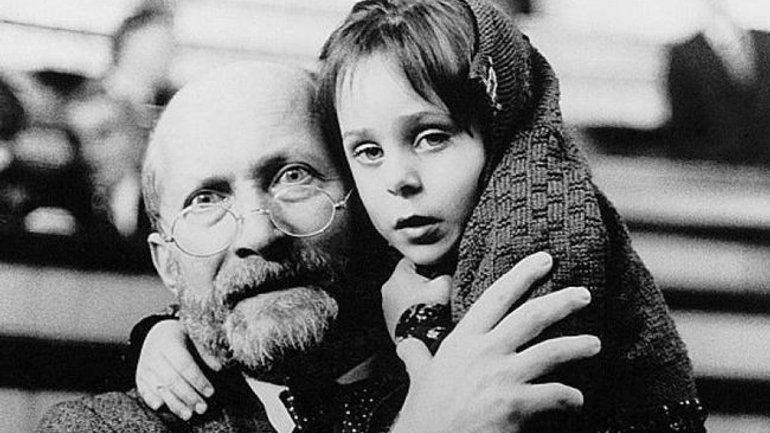
Journalist, copywriter, at religion organizations since 2012

There is not a single century in the history of mankind that has not been marked by severe events and their catastrophic consequences.
First of all, these are wars, which have always claimed the lives of millions of people and brought global destruction.
Unfortunately, the 21st century is no exception for Ukraine, as the war that began with the Russian invasion has been going on for three years. Ukrainians, of course, are awaiting victory, which is clear from the history of wars of the past.
But also awaits the powerful work of rebuilding the country, especially with regard to the spiritual, mental and physical state of the people. So much post-war pain Ukrainians will have to see, especially in the eyes of the orphans that Ukraine is increasingly filled with.
It is said that in dark times, the brightest people are best seen.
Janusz Korczak (real name Henryk Goldszmit), a famous Polish teacher, doctor and publicist, said about war that it is a difficult phenomenon, but spiritually strengthening.
It was he who, during the Second World War, became a light and a support for two hundred orphans of Jewish origin in the Warsaw ghetto. They had no one but their "doctor," as he was reverentially called by those with whom he went to his death in a Nazi concentration camp in 1942.
The difficult but revealing lessons of Janusz Korczak's wartime life, full of fearlessness and wisdom, can be learned from the feature film Korczak (1990).
The movie is based on real events and was directed by Polish director Andrzej Wajda. The film is in black and white, reminiscent of newsreel footage. Carefully selected details from the life of the German fascist-occupied Warsaw immerse you in the events of the early 1940s and emotionally involve you in that terrible past when enraged Nazis walked the streets among the starving people.
Throughout the movie, the main idea is to show how the protagonist Janusz Korczak protected deprived children, and not only in his orphanage. Helping children was his vocation and he did not change it.
He resolutely demanded from the Nazis a proper burial for the children who died in the streets, for the sake of his students he made contact with Jewish collaborators and entrepreneurs and cooperated with the anti-fascist underground movement - all for the sake of one goal: to let the children survive.
When asked by representatives of the antifascist movement whether he had an honor, the doctor replied that he had no honor, but two hundred children.
The director showed the suffering of the children in the pictures of Korczak's students. He pointed out that each of them had a personality and a desire to live a full life, but as Jews, they faced difficulties that brought suffering and left the question "Why?" unanswered.
In the midst of their suffering, there was a doctor who stood in for their father and mother, and although he could not answer difficult questions, he showed tenderness and understanding to each of them.
Janusz Korczak, in such an extremely difficult time, when his own life and that of his students were at stake, resembles a messenger to the children he was called to serve in times of peace: numerous books for children and their parents, radio programs on the education of youth - the fruits of his love for this defenseless category of humanity - were left by him as a legacy to future generations.
The culmination of his service to children was laying down his life in the gas chamber of the Treblinka concentration camp, together with those to whom the famous Polish educator had devoted his entire life.
Although the doctor was offered salvation three times, he chose what corresponded to his values and what he lived by.
The film ends in an epochal way: the death train wagon in which Korczak and his children stayed is separated from the others and stops, and happy children run out of it, led by their doctor dressed in white, as if angels had ascended to heaven, leaving the earth in the fire of hatred forever.
The performance of the actors, especially that of the protagonist, is unsurpassed - there is no doubt that it is Janusz Korczak himself who is appearing before the audience.
Although the movie is based on real events, it is still fiction, so it is worth remembering that there is always room for authorial speculation. If the reader is interested in the biography of the outstanding teacher and the historical facts of that period, then he or she should find the opportunity to turn to archival data about the life and work of Janusz Korczak.
The "Korczak" movie can be useful for those who are looking for their purpose, to stimulate deeper reflection on the meaning of suffering in life, to sharpen the desire to live life to the fullest, refusing indifference, and to help them more easily endure the suffering of the present in times of modern war, seeing that, as the wise Ecclesiastes said, "there is nothing new under the sun".
For the ministry Christ is the answer (CITA).